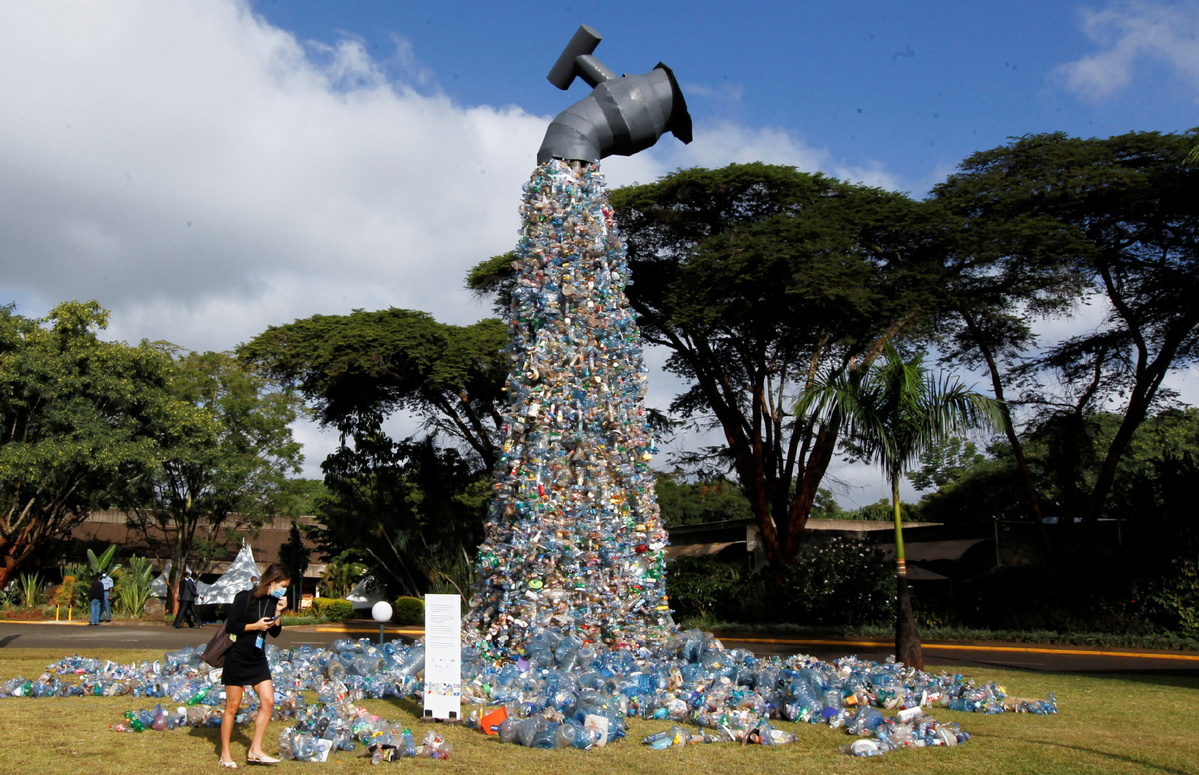UN green forum pushes for pact to tackle plastic


The fifth session of the United Nations Environment Assembly began on Monday in Nairobi, Kenya, with high hopes to strike a global agreement on controlling plastic pollution amid the push for greener economies and greater protection of the planet's biodiversity.
Espen Barth Eide, president of the assembly and Norway's minister of climate and environment, said plastic pollution has grown into an epidemic of its own.
"Plastic is a product that can be used again, and then over and over again, if we move it into a circular economy. I am convinced that the time has come for a legally binding treaty to end plastic pollution," he said.
"The idea is to get a strong mandate from here so that we can sit down and negotiate such a treaty."
Eide said there is a strong support for a treaty from governments across the world, civil society and businesses, including those that are involved in the production and sale of plastic items.
Inger Andersen, executive director of the UN Environment Programme, expressed optimism that a legally binding instrument will be endorsed during the assembly.
"Over the last week, we have seen tremendous progress on negotiations toward an internationally legally binding instrument to end plastic pollution," she said. "I have complete faith that once endorsed by the assembly, we will have something truly historic on our hands."
Andersen said an ambitious action to beat plastic pollution should track the life span of plastic products, from source to sea, should be legally binding, accompanied by support for developing countries and backed by financing mechanisms.
It should also be tracked by strong monitoring mechanisms, with incentives for all stakeholders.
"If we can achieve all of this, we will indeed have the most important international multilateral environmental deal since Paris," Andersen said.
She said between 1950 and 2017,9 billion metric tons of plastic were pumped into the environment; 7 billion tons of it ended up as waste.
"At UNEP, we were delighted to see 80 companies sign up and asking for a legally binding global agreement on plastic from source to sea," Andersen said.
But she said the 20 largest polymer producers - responsible for about 50 percent of all single-use plastics sold - have not signed up in support of a global agreement on plastics.
She said despite the current low rate of recycling at around 10 percent, the circular economy is advancing. But it will take a global agreement to set boundaries on what is acceptable in packaging.
More than 3,400 in-person and 1,500 online participants from 175 UN member states are attending the event, which ends on Wednesday.
































